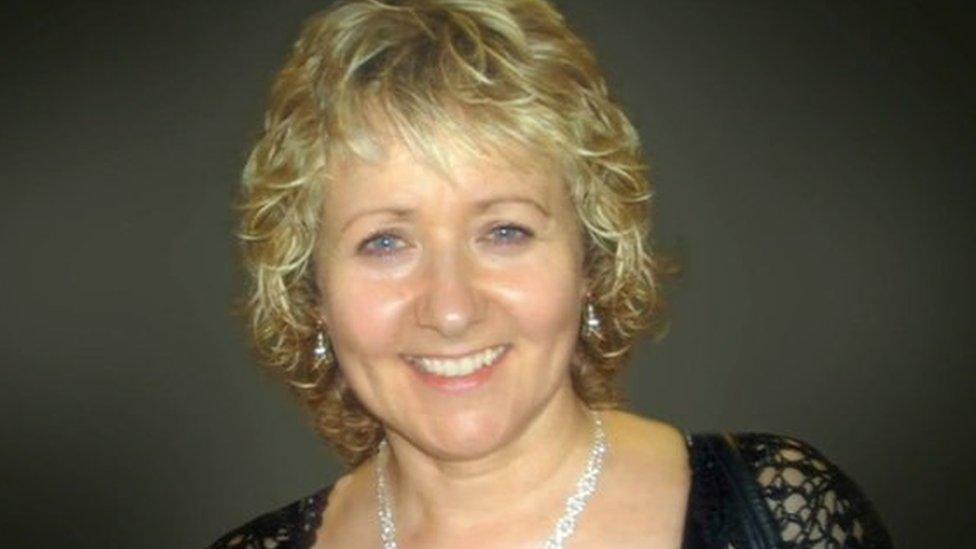Weapons in schools: 'I used anything I could get'
- Published
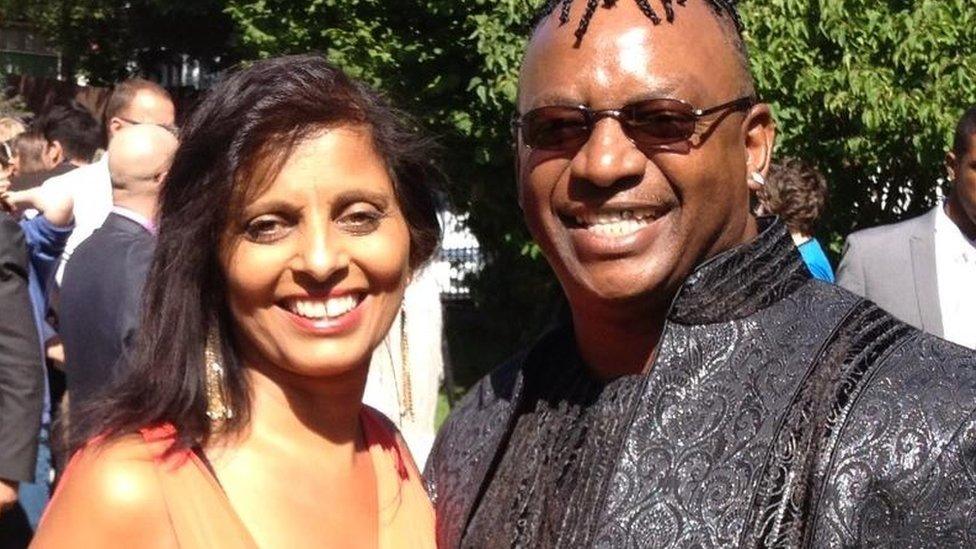
Former offenders Bali and Lennox Rodgers now counsel schoolchildren facing exclusion from school
More children are getting caught carrying knives and makeshift weapons - including rolling pins and beer cans - police in England and Wales say. Here, one woman explains why she took weapons to school as a child.
"I used anything I could get my hands on," says Bali Rodgers, from Dartford in Kent, who had been arrested three times by the age of 11.
"I didn't take knives but used fists and other things," she says.
She recalls using a shiv - a type of improvised blade - to harm other pupils, and put pins in another girl's shoes.
"To think now about [what I did then] frightens the life out of me," she says. "I was in total denial at the time."
Mrs Rodgers finally changed her life after leaving school at 15 and ending up in a psychiatric ward by the age of 21. She now counsels schoolchildren who are on the verge of exclusion from school.
She says of her own childhood: "I didn't know any other way," she says. "I ended up hurting others, and myself."
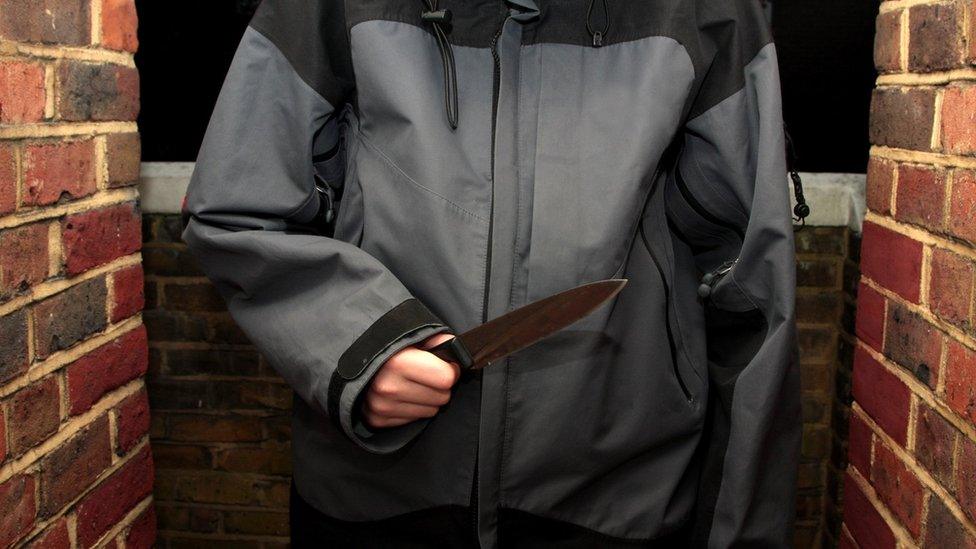
The 49-year-old counsels children in Dartford, Maidstone, Hastings and south-east London, and says many of those she talks with are "extremely paranoid" that they will be attacked if they don't have a way of protecting themselves. This is particularly the case with those who have been bullied at some stage.
She believes pupils are now carrying a bigger variety of weapons - and at a younger age - than in previous school generations.
"They get their hands on a knife or some object and think 'I'll never use it but carry it just in case'," she says.
"I am working with one 14-year-old girl who doesn't fit in at school, but is carrying knives for her boyfriend. It's really sad."
A recent Freedom of Information request found an array of dangerous items - including swords, axes and air guns - were among the 2,579 weapons seized in schools in England and Wales in the two years to March 2017.
"You get the ones in gangs who brag, and see it as a bit of a fashion," she says.
"But it's the silent types who feel vulnerable, so they carry things."
'Silent types'
She recalls that her own turbulent childhood - with an alcoholic father and being racially bullied - made her "constantly violent" at school.
"My dad used to threaten me, I was petrified of him," she says.
She ran away from home at 15 but a decade later was taken in by a family in Kent who helped her turn her life around as a young adult.
"They were a couple, who were missionaries in Africa, and they helped me get a whole new understanding of family, respect, values."
She says that living in a stable home helped her learn that her anger was out of control.
"That's what's missing for many kids," she says. "If there's no-one at home to talk to, you don't learn to respect teachers or how to control your rage."
Mrs Rodgers says teachers are "under more pressure than ever" and may be unable to deal with pupils who have complex issues at home.
In an unusual incident three years ago, teacher Ann Maguire was stabbed to death at her school in Leeds by a teenage pupil.
Will Cornick, who was 15 at the time of the murder, later said he had gone to class that day in "a red mist, not conscious of his surroundings".
'Sense of power'
Mrs Rodgers now runs a charity, Refocus, with her husband Lennox, who himself carried a knife when he was a teenager.
Organisations Foundation4Life and UserVoice offer a similar service, by using ex-offenders to speak to young people at risk of turning to crime.
"Unlike with teachers and parents, these kids open up to us," she says. "I will tell them a little bit about my story if they share a bit of their story."
For husband Lennox, who co-founded the charity in 2004, he thought when he was younger that carrying a knife "gave me a sense of power".
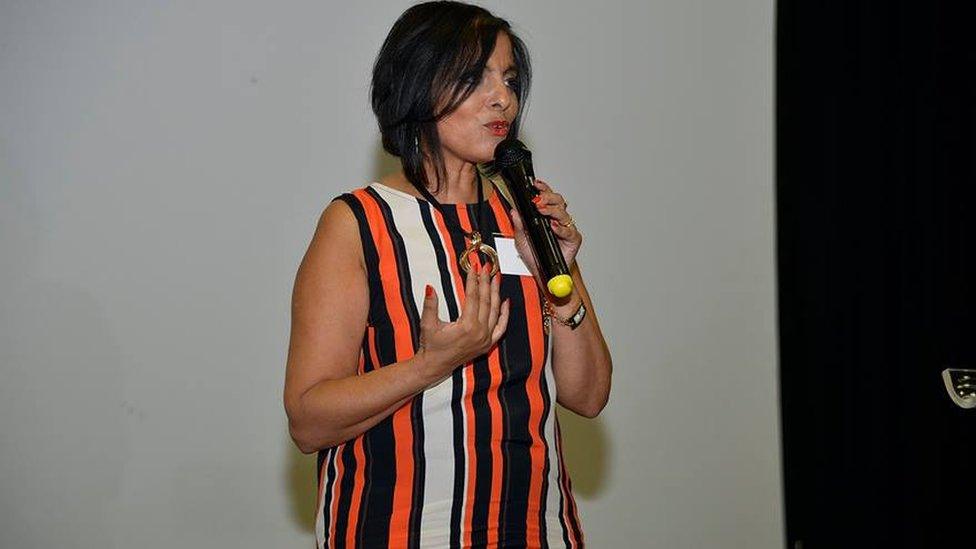
He carried weapons after being bullied for being black when growing up in Oxford.
After leaving school, he was involved in gangs and spent two decades in and out of prison.
Mrs Rodgers says that young people hang on to every word her 54-year-old husband says when he is talking about his life, but insists that his stories do not glamorise the carrying of weapons.
"They do think he's cool - but also listen to the dark side of his story - that if you deliberately put yourself on a route of violence you don't succeed and end up in serious trouble," she says.
"I'm hoping we turned some bad into good."
- Published12 May 2017
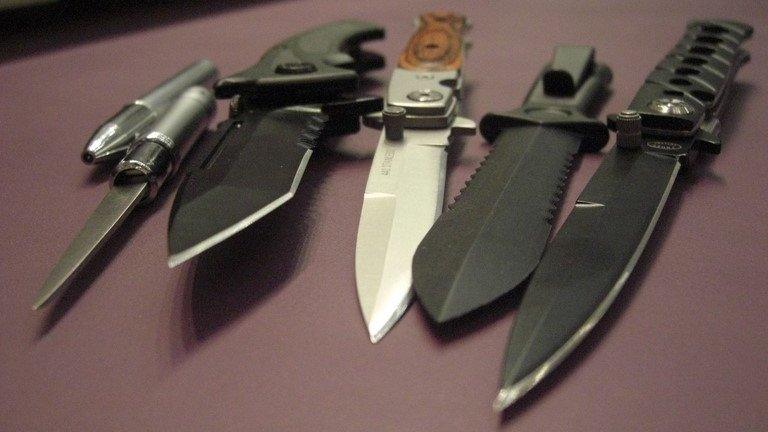
- Published8 December 2016
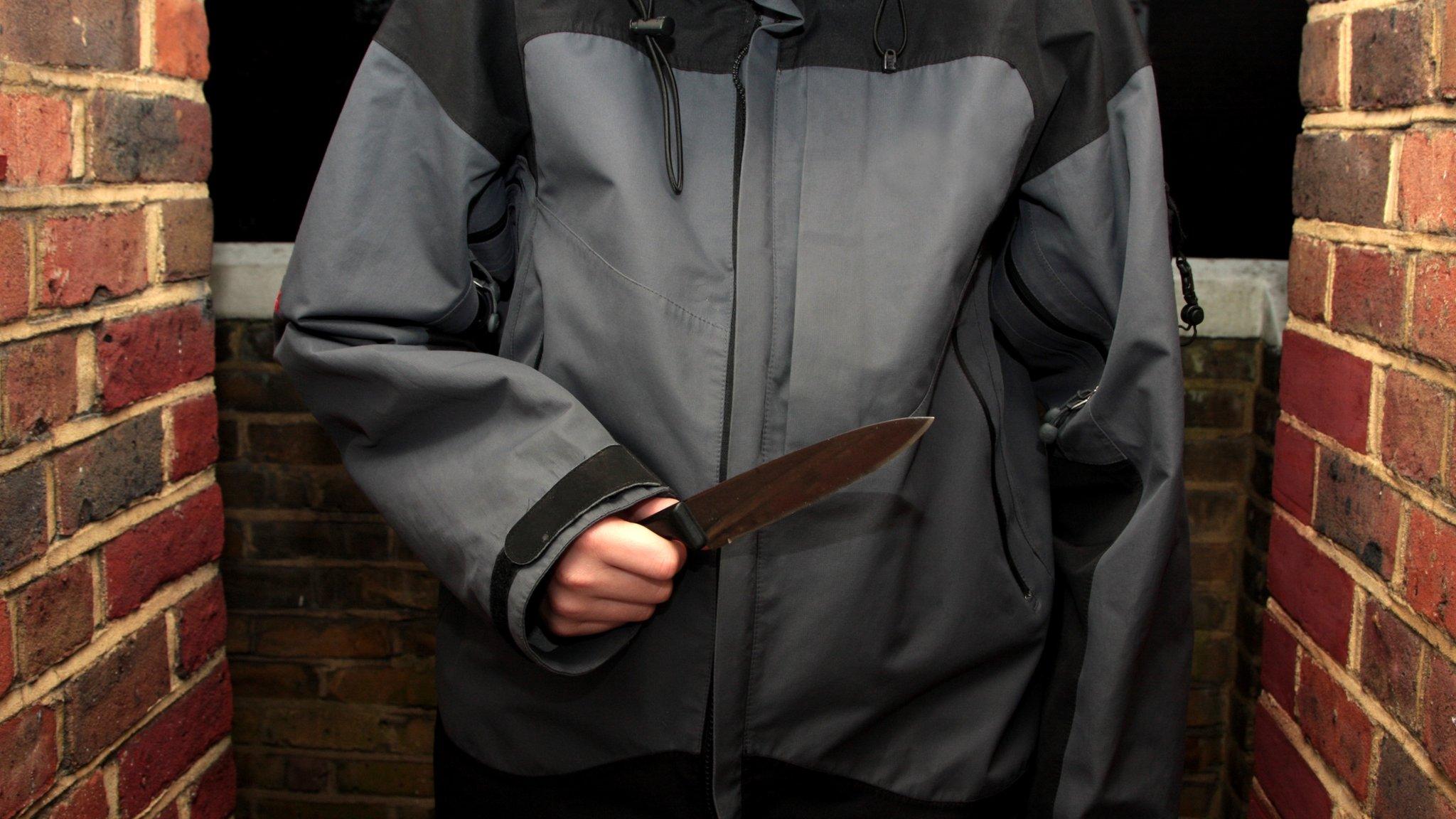
- Published14 March 2017
